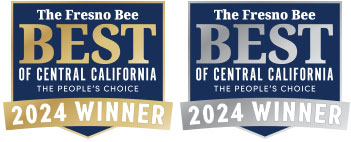- HRCM-001
- Introduction to Hospitality
- Credit(s) 3
Introduction to Hospitality
HRCM 001 is a fundamental overview of the hotel, restaurant, tourism, and casino
segments of the hospitality industry. This course provides an overview of the operational
sectors of the hospitality industry with an emphasis on organizational structures,
departments, job classifications, and career paths. Lecture and discussion are enhanced
by industry guest speakers and industry visits.
- Class Hours:
- 54 Lecture
- Advisory(s); CUL 050:
- Transfers to:
- CSU
- HRCM-003
- Hospitality Marketing
- Credit(s) 3
Hospitality Marketing
HRCM 003 examines the essential skills required to effectively develop and implement
a marketing plan to meet the needs and philosophy of the hospitality industry. This
course will focus on the role of marketing in strategic planning, marketing environment,
market segmentation, targeting, positioning, internal/external marketing, product
development, promotions, and professional sales.
- Class Hours:
- 54 Lecture
- Advisory(s):
- CUL 050
- P/NP
- Transfers to:
- CSU
- HRCM-004
- Superv and Leadership in Hospi
- Credit(s) 3
Supervision and Leadership in Hospitalit
HRCM 004 examines the roles and responsibilities of managers in the hospitality
industry. This course will focus on developing communication strategies, motivational
techniques, performance evaluation and review, staffing, training, and strategic
planning.
- Class Hours:
- 54 Lecture
- Advisory(s):
- CUL 050
- Transfers to:
- CSU
- HRCM-015X
- Occupational Work Experience
- Credit(s) 1 - 8
Occupational Work Experience
Cooperative Work Experience Education (CWEE) develops skills and knowledge by
integrating classroom study with planned, supervised work experience. It is based
on the principle that well-educated individuals develop most effectively through an
educational plan that incorporated work experience. Through these structured experiences,
the students enrich their college studies, which enhance their total development.
Occupational Work Experience is supervised employment which is intended to assist
students in acquiring desirable work habits, attitudes, and career awareness in the
field of the student's major. Students may earn up to 8 units per semester for a maximum
of 16 total units. Credits are awarded for paid or voluntary work. For every 75 hours
of paid work completed within the semester, 1 unit or credit is awarded. For every
60 hours of volunteer work completed within the semester, 1 unit of credit is awarded.
Occupational Work Experience credits are counted as electives toward an Associate's
Degree at West Hills College Lemoore and are transferable to four year universities
(for specific transfer elibility, please contact a counselor or an advisor).
- Class Hours:
- Work Experience
- Transfers to:
- CSU
- HRCM-062A
- Career Success&job Ret Skills
- Credit(s) 0.5
Career Success & Job Retention Skills
HRCM 062A focuses on the necessary steps to a successful job search, including
finding job sources, how to apply, how to accurately complete the application, how
to develop and use a resume, how to prepare for the interview, how to make a positive
first impression and dealing with rejection. It also covers techniques for meeting
employer expectations and growing on the job. Topics include understanding the work
culture, effective human relation skills, developing a positive attitude, being a
team player and time management. This course may be used as credit for either Hotel,
Restaurant and Casino Management or Business but not for both.
- Class Hours:
- 9 Lecture
- P/NP
- HRCM-062B
- Workplace Communication Skills
- Credit(s) 0.5
Workplace Communication Skills
HRCM 062B focuses on the importance of effective communication in the workplace.
Topics include discussion on the four components essential to communication (sender,
medium, message and receiver), barriers to effective communication, and techniques
for avoiding barriers, as well as skills in developing effective telephone communications.
This course may be used as credit for either Hotel, Restaurant and Casino Management
or Business but not for both.
- Class Hours:
- 9 Lecture
- P/NP
- HRCM-062C
- Build Confidence & Working Pub
- Credit(s) 0.5
Building Conf & Working With the Public
HRCM 062C focuses on strategies for dealing with the public. Topics include building
confidence, managing stress, anger management and dealing with disappointed, demanding
or disruptive guests or customers. This course may be used as credit for either Hotel,
Restaurant and Casino Management or Business but not for both.
- Class Hours:
- 9 Lecture
- P/NP
- HRCM-062D
- Guest Rel & Customer Service
- Credit(s) 0.5
Guest Relations and Customer Service
HRCM 062D analyzes the basic concepts and current trends in the hospitality and
customer service industries. The skills necessary to achieve quality guest and
customer service are stressed, as well as the following topics: guest/customer expectations,
guest/customer satisfaction, guest/ customer dissatisfaction, meeting guest/customer
needs, guest/customer retention and creating a guest/customer service system. This
course may be used as credit for either Hotel, Restaurant and Casino Management or
Business but not for both.
- Class Hours:
- 9 Lecture
- P/NP
- HRCM-067
- Orientation to Hospitality Op
- Credit(s) 1
Orientation to Hospitality Operations
HRCM 067 is an orientation course of the hospitality industry, including a historical
prospective on the origins and subsequent development of the Hotel and Casino Industry,
development and evolution of Native American gaming, overview of: casino cage operations,
food and beverage operations, bingo operations and security operations. This course
will also cover an overview of hotel, restaurant and casino risk management operations,
hospitality industry employment opportunities and employee benefits, overview of
guest relations and customer service as well as quality control procedures within
the industry.
- Class Hours:
- 9 Lecture | 27 Laboratory
- Advisory(s):
- CUL 050
